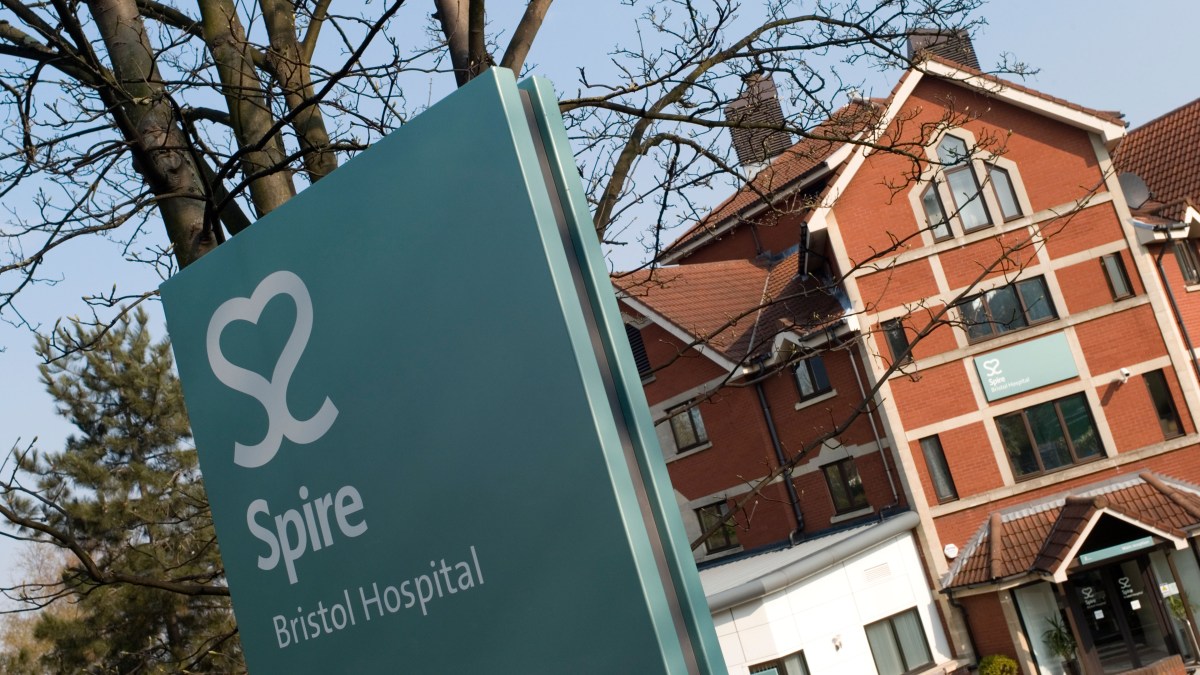With the shares in Spire Healthcare having largely moved sideways over the past four years the company has put itself “in play” amid frustration among the board and some large agitating shareholders.
The FTSE 250 healthcare company, advised by Rothschild, said last month that it had begun a formal process to hold discussions with unnamed third parties over its strategic options, including a possible sale.
Although Spire, whose chairman is the City grandee Sir Ian Cheshire, has warned that the process is “highly preliminary” and that it was not “in receipt” of any approaches, a potential deal is at its most likely since shareholders voted down a £1 billion, 250p per share takeover from its competitor Ramsay Health Care in 2021.
Spire is one of Britain’s largest independent healthcare companies, running 38 hospitals and about 50 clinics, medical centres and consulting rooms, providing services to both NHS and private patients. It also operates a network of private GPs and provides occupational health services to more than 800 corporate clients.
The company has long been deemed a takeover target, having rejected a 315½p cash-and-shares offer from Mediclinic, its largest shareholder, in 2017, four years before the Ramsay offer was rebuffed.
And with the shares having not traded much above 250p since, frustrations with its valuation led Spire to bemoan at its half-year results in July that its strategic progress, more than £1.4 billion freehold property and “well-invested” asset base were not yet reflected. It stated then that it would “continue to actively evaluate and implement any appropriate action that drives long-term shareholder value”.
Behind the scenes, some large investors have also been agitating for things to come to a head.
Harwood Capital, which has a stake of about 5 per cent, has been pressing Spire to appoint advisers to consider its options. Harwood is understood to have had a meeting with the company late last month.
Toscafund Asset Management, another large shareholder, is understood to be sympathetic to this view and holds about 24.5 per cent, including a position held by Bridgemere Securities, regulatory filings suggest.
The large positions of Toscafund and Mediclinic, which holds almost 30 per cent, means Spire is tightly held. The latter also holds a seat on Spire’s board.
The top ten holders account for about 80 per cent of the shares which, as analysts at Panmure Liberum noted in a recent equity research report, means that it would be relatively easy for a purchaser to get to the “magic” 75 per cent threshold to clinch a takeover. A bidder would, though, need to get past potential blocking stakes. The top-ten holders have average in-prices of between 200p and 240p, compared with Mediclinic’s 297p.
In Panmure Liberum’s analysis, titled “Not a straightforward situation”, which examined Spire’s potential options, the broker concluded that the best route to “unlock value” was through selling the company.
In this scenario Panmure Liberum estimated that the shares could be worth 325p to 450p. Healthcare operators, private equity, property investors and health insurers could all be suitors.
It argued that alternatives were less favourable, such as a 100 per cent sale and leaseback of Spire’s property as it would leave the remaining operating company on a “weak financial footing”, while selling Spire’s services business would mean exiting a fast-growing and less capital intensive sector “and one that we think will become of increasing strategic importance to Spire’s private medical insurance customers”.
A partial sale and leaseback to generate funds to invest in the services business could therefore be an alternative route.
Panmure Liberum concluded that although the likelihood of a deal was now higher, it warned that Spire has been a bid target for years and aside from Mediclinic and Ramsay no other bids have emerged, despite the shares having slumped to a low of about 170p in March after a profit warning.
That £30 million cut to forecasts in March was attributed to rising employment and energy costs as well as a shift from higher-margin self-pay to private insurance. Spire continues to forecast adjusted profits of between £270 million and £285 million this year, guidance that was reiterated at the half-year results in July.
Advice: Buy
Why: Prospect of a deal at a premium has increased and strategic progress is underappreciated

